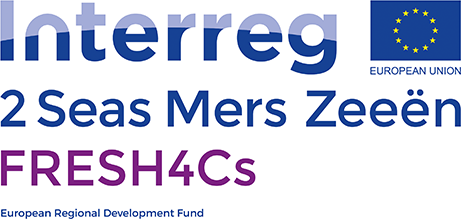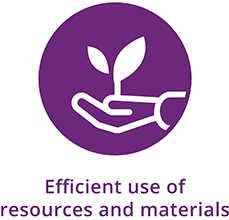FRESH4Cs demonstrates alternative water resources for coastal regions in the UK, Belgium and the Netherlands. Each demo case focusses on providing alternative and sustainable water resources through innovative technological and non-technological solutions.
In the Felixstowe area (UK) a water transfer network, connecting the mouth of a drainage channel with reservoir basins at farming fields, is under construction in the Felixstowe area (UK). The network, including a pumping station, will be operational by December 2020. Water will be transferred and stored during periods of water abundance (winter period) to serve for irrigation of agriculture fields in summer. With the network nearing completion soon, it will be operated to irrigate crops in the next growing season (spring and summer 2021).
Read more about the Felixstowe case
Also in the Felixstowe area (UK) this water transfer network will be connected to a second demo: managed aquifer storage and recovery. In a first phase we modelled the potential of the aquifer to seasonally store and abstract water. Water quality is an important issue for aquifer recharge, and monitoring will determine the suitability of available water for such aquifer recharge. Over the next year we will continue to monitor available water quality to determine its suitability, while permit applications are ongoing. If permits are obtained, this demo will be effectively operational by next winter.
Read more about the Felixstowe MAR case
In Koksijde (BE), we will demonstrate the use of a nature-based solution (willow field) to treat the concentrate of an existing reverse osmosis (RO) installation currently treating household waste water effluent to drinking water quality. This installation will decrease pollution load (nutrients and metals) and we will test how the new water stream can be used. Over the last year the system has been designed, and we are now waiting for the completion of the permit application to effectively start construction. If all goes as planned, we hope to have the demo running by the end of 2021.
Read more about the Koksijde case
In Kwetshage (BE) we will demonstrate above ground and subsurface storage (creek ridge infiltration) of seasonal water surpluses in a natura 2000 area, to provide water during drought periods. Although nature will be the main beneficiary here, this demo is mainly intended as a proof of concept to ensure further uptake by both nature and agriculture in the region. This demo has now been engineered, but additional studies are needed to assess the influence on the stability of nearby infrastructure. This causes a delay in the planning and permitting phase, and we hope to have this demo running by spring 2022.
Read more about the Kwetshage case
In the Braakman-Zuid region (NL) subsurface water storage (creek ridge infiltration) will be piloted after an initial feasibility study. The primary water users are industry (Dow Benelux) and local agriculture. After organizing different workshops with local stakeholders in early 2020, we are now in the engineering phase of a first pilot installation and if permits are obtained in a timely manner, we hope to operate the demo as of spring 2021.
Read more about the Terneuzen case
In Kruiningen (NL) we are testing the possibilities for surface and subsurface storage of food-industry effluent (from Lamb Weston / Meijer), for reuse as agricultural irrigation water. The focus here is on water quality and treatment requirements where necessary, as well as the technical aspects of the storage. The result will be a feasibility study. Monitoring and planning is now being carried out, with results expected in late 2021.


